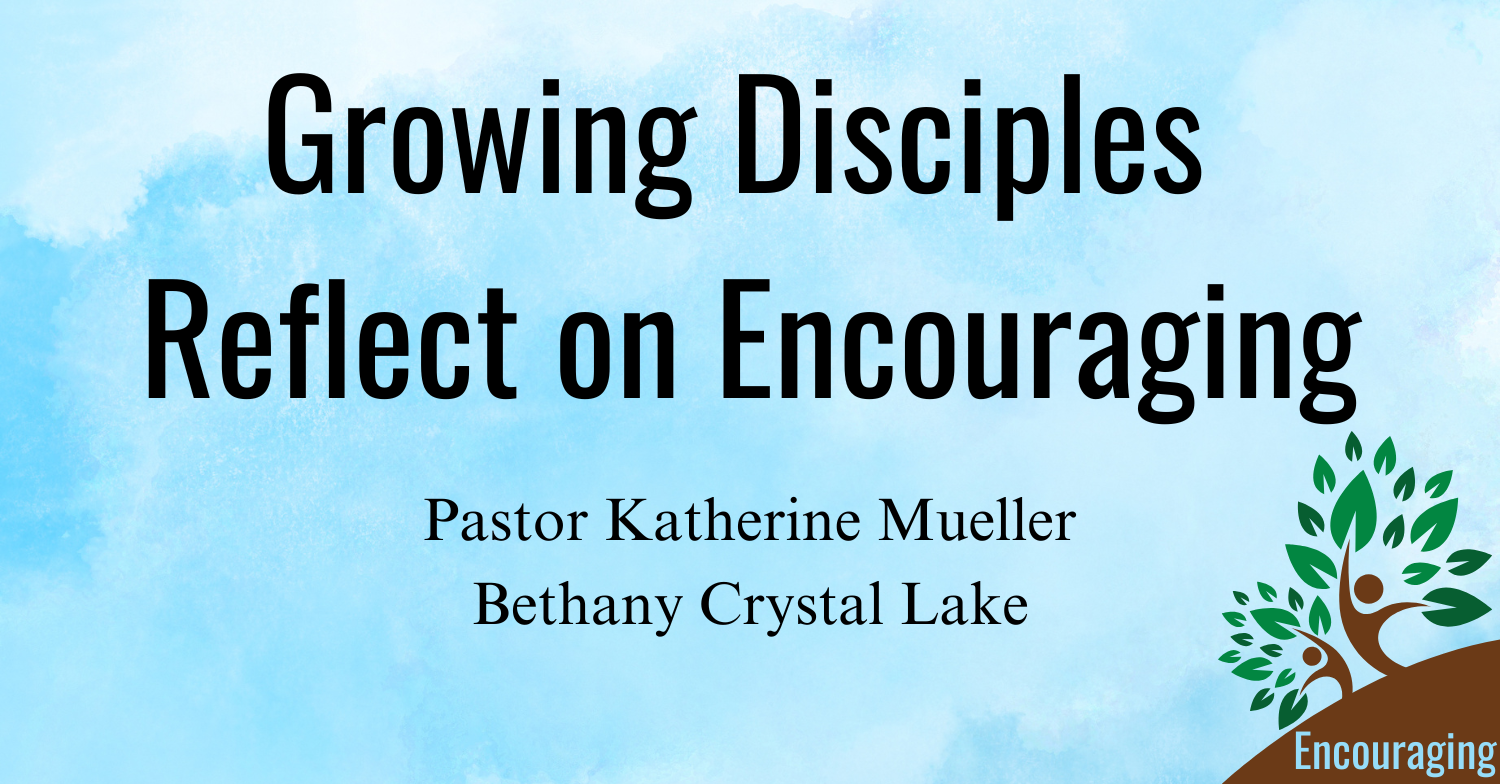
Growing Disciples Monthly Reflections are written by a variety of leaders across our synod; as such, the language reflects the individual's personal theology. We give thanks to Pastor Katie Mueller, Bethany Crystal Lake, for her reflection on encouraging.
At Bethany Lutheran Church, we’ve been saying that “justice has a story.” It’s more than a tagline—it’s a way of being.
Justice isn’t a concept we think about. It’s a living, breathing narrative we step into. And in that story, there are no small roles. Committing to justice can be messy. It asks us to name what’s blossoming and what’s breaking. It calls us to stay grounded in connection and to honor relationships even when the world says, “Take what you can for yourself and go it alone.”
That’s where encouragement comes in.
Encouragement isn’t just being nice (though kindness absolutely matters). It’s deeper than that. It’s a holy practice. A spiritual muscle we stretch and strengthen in community. It’s how we say to one another again and again: You belong. Your story matters. You are not forgotten. Encouragement names the goodness we see in each other—even (especially!) when we lose sight of it ourselves. It’s how the body of Christ builds itself up—not by erasing our differences, but by celebrating the sacred beauty God is growing in each of us.
At Bethany, encouragement looks like a pancake breakfast during Holy Week, where our youth and our elders come together—flipping pancakes and forming connections across generations. It looks like a confirmation mentor who keeps showing up for a middle schooler still deciding whether church feels like a place they belong. It’s someone telling their truth with trembling hands in Bible study, and another person slipping them a note afterward that simply says: “Me too.” It’s our young adults reading scripture in worship for the first time and being told: Keep going. Keep listening. Keep leading. It’s someone walking through our doors unsure whether their story will be welcomed—and being met not with suspicion, but with joy.
And then there are the moments of courageous, communal commitment—like our church’s growing connection with our immigrant neighbors. Over the past year, we’ve been stepping up: learning, listening, unlearning. Congregants have taken time to understand the stories of those who’ve arrived here with trauma and uncertainty.
We’ve sat in meeting rooms and sanctuaries alike, growing in our understanding of what it means to accompany as siblings in Christ.
It’s not glamorous work, and it doesn’t come with accolades. But I’ve seen the Spirit at work in it—in the choice to stay curious instead of comfortable. In the commitment to relationship over assumptions. And in the quiet, collective voice of our people saying: Even when the world says there’s not enough—we will trust that God is already making a way. We will believe, together, that there is enough love, enough room, enough grace for all of us.
Friends, I don’t know if I could ever preach a sermon more powerful than those small acts of commitment and courage. That’s encouragement in action. Sacred. Ordinary. Transformative.
Encouragement softens sharp edges. It makes space for grief and joy to coexist. It gathers a roomful of individuals and binds us into a living, breathing community—a people not shaped by perfection but by presence.
A good word of encouragement can be the thing that keeps us committed to resistance. To encourage someone is to resist despair. To resist isolation. To resist the lie that there’s not enough to go around. Encouragement reminds us that we are not alone. That God is still showing up.
Scripture gives us this vision, too. In Acts 15, the early church was navigating disagreement, cultural difference, and uncertainty. But they stayed in the room. They listened. They encouraged. And the church didn’t just grow in size—through God’s grace it grew in grit and in courage. That’s the kind of church I want to be part of.
And listen, sin is going to stop us from always getting it right. Sometimes we’ll miss the moment. Sometimes we’ll be tired or distracted. Sometimes fear and busyness will get in the way. But we keep practicing. Because encouragement isn’t a personality trait—it’s a calling. A discipline. A way of being shaped more and more by love.
So send the text. Make the call. Ask the question. Offer the ride. Speak the blessing. Share the story. Sit with someone in the ache and trust that your presence is enough.
We are called to be encouragers—in our churches, in our neighborhoods, in the sacred and the everyday. We remind each other who we are, and whose we are. We become, together.
Because justice has a story—and every one of us has a part to play.
